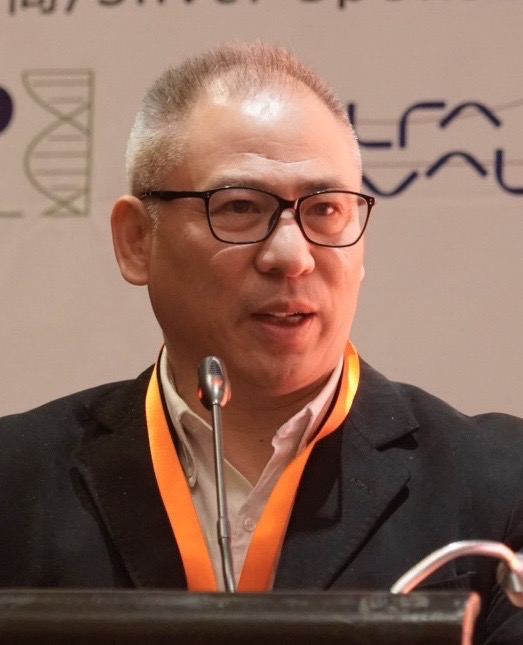| Biography | |
|---|---|
 Prof. Bin Wang Repositioning of GM-CSF as A Therapeutic Vaccine Adjuvant to Treat Chronic HBV Infected Patients, China |
|
| Title: Repositioning of GM-CSF as A Therapeutic Vaccine Adjuvant to Treat Chronic HBV Infected Patients | |
| Abstract: GM-CSF induces the differentiation and maturation of monocytes to improve the functions of antigen-presenting cells, therefore be considered as a potential vaccine adjuvant. However, some recent confusion clinical studies suggested the GM-CSF as an adjuvant could induce suppressive immune responses rather than stimulations. Although the mechanism remains uncertain, we reasoned that this undesirable effect of using GM-CSF could be a consequence of the duration of maturation being too short for monocyte to become DC. Prolong treatment of GM-CSF may enhance its adjuvancity because of more monocytes becoming antigen-presenting DC. We demonstrate that 1) significant enhancement of maturation of DCs after 3 days pretreated with GM-CSF in animals before given a HBV vaccine; 2) Levels of anti-HBsAg antibody, anti-HBsAg cell-mediated responses, including DTH, T cell proliferation, IFN-γ production CTL, were dramatically enhanced in the 3-day pre-treated group; 3) the 3-day pre-treatment with GM-CSF prior to HBV vaccination could significantly clear viral DNA, HBeAg and HBsAg and importanly induce anti-HBsAg antibodies in AAV-HBV infectious model, suggesting a functional cure against HBV infection. 4) A clinical test has been conducted and consistent results were achieved in patients treated with this protocol. Therefore, the results of this study provide evidences that a correct use of GM-CSF is important as a potential adjuvant for therapeutic vaccine application against persistent infections, such as the chronic hepatitis B viral infections. | |
| Biography: BIN WANG, Ph.D. and Professor Dr. Bin Wang is the director of National Engineering Lab of Therapeutic Vaccines and a distinguished professor at Department of Medical Microbiology and Parasitology, Fudan University School of Basic Medical Sciences. His research area is to focus on the effects of therapeutic vaccination to activate T cell or suppress T cells and the mechanism of immune regulations. His lab recently has demonstrated that a key role of Treg cell against anti-tumor CD8 T cell in a spatial-temporal manner during the tumor growth and similar key role in HSV-1 latent infection and reactivation. His lab has also developed a novel adjuvanted HBV therapeutic vaccine against chronic HBV and tested in clinical trials. He received his B.A. in biology from Shandong University in 1982 and his Ph.D. from the University of Cincinnati School of Medicine in 1990. He completed his postdoc training in virology and immunology at the Wistar Institute 1992. He became an instructor and then assistant professor at University of Pennsylvania Medical School in the period of 1993 to 1998. He was a professor and served as the Chairman at Department of Microbiology and Immunology for 6 years at College of Biological Sciences, China Agricultural University before he joined to Fudan University. He has published over 150 peer-review articles and awarded 35 US and 22 Chinese patents. He serves as editorial board members for several international journals and executive members in number of scientific societies. | |
